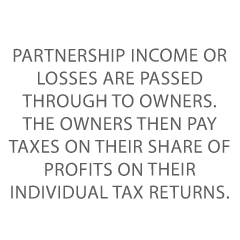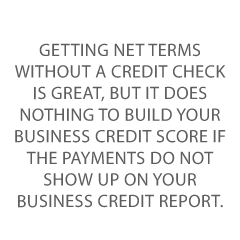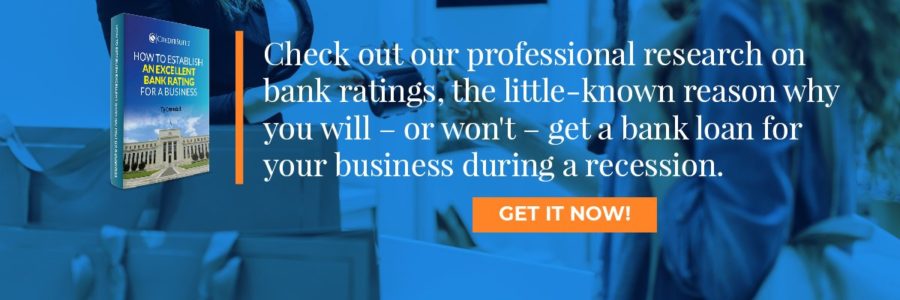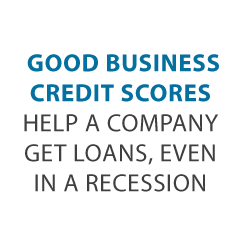Apply for a Business Credit Card with Bad Credit in a Recession the Foolproof Way
Do you want to apply for a business credit card with bad credit in a recession which you think will drag you down? Not to worry. And that is still true despite the emergence of COVID-19.
According to the SBA, business credit card limits are 10 – 100 times those of personal cards! This shows you can get a lot more cash with business credit.
And it also means you can have personal credit cards at retail stores, and now have an additional card at the same shops for your business. And you won’t need collateral, cash flow, or financial information to get company credit.
Apply for a Business Credit Card with Bad Credit in a Recession
Brex Card for Startups
Take a look at the Brex Card for Startups. It has no annual fee.
You will not need to provide your Social Security number to apply. And you will not need to provide a personal guarantee. They will take your EIN.
Nonetheless, they do not accept every industry.
Also, there are some industries they will not work with, and others where they want more paperwork. For a list, go here: https://brex.com/legal/prohibited_activities/.
To determine creditworthiness, Brex checks a business’s cash balance, spending patterns, and investors.
You can get 7x points on rideshare. Get 4x on Brex Travel. Also, get triple points on restaurants. And get double points on recurring software payments. Get 1x points on everything else.
You can have bad credit scores (even a 300 FICO) to qualify.
Find it here: https://brex.com/lp/startups-higher-limits/
Check out how our reliable process will help your business get the best business credit cards, even during a recession.
Apply for a Business Credit Card with Bad Credit in a Recession – Fair Credit? No Problem!
Capital One® Spark® Classic for Business
Check out the Capital One® Spark® Classic for Business. It has no annual fee. There is no introductory APR offer. The regular APR is a variable 24.49%. You can earn unlimited 1% cash back on every purchase for your business, with no minimum to redeem.
While this card is within reach if you have average credit scores, beware of the APR. Yet if you can pay in a timely manner, and completely, then it’s a bargain.
Find it here: https://www.capitalone.com/small-business/credit-cards/spark-classic/
Apply for a Business Credit Card with Bad Credit in a Recession with a 0% Introductory APR – Pay Zero!
Blue Business® Plus Credit Card from American Express
Check out the Blue Business® Plus Credit Card from American Express. It has no yearly fee. There is a 0% introductory APR for the first one year. Afterwards, the APR is a variable 14.74 – 20.74%.
Get double Membership Rewards® points on everyday company purchases like office supplies or client suppers for the first $50,000 spent per year. Get 1 point per dollar afterwards.
You will need great to exceptional credit to qualify.
Find it here: https://creditcard.americanexpress.com/d/bluebusinessplus-credit-card/
American Express® Blue Business Cash Card
Also take a look at the American Express® Blue Business Cash Card. Note: the American Express® Blue Business Cash Card is identical to the Blue Business® Plus Credit Card from American Express. However its rewards are in cash instead of points.
Get 2% cash back on all qualified purchases on up to $50,000 per calendar year. After that get 1%.
It has no yearly fee. There is a 0% introductory APR for the initial one year. Afterwards, the APR is a variable 14.74 – 20.74%.
You will need great to exceptional credit scores to qualify.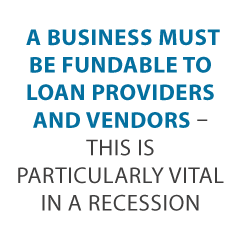
Find it here: https://creditcard.americanexpress.com/d/business-bluecash-credit-card/
Apply for a Business Credit Card with Bad Credit in a Recession and Even Get Luxurious Travel Points
Flat-rate Travel Rewards
Capital One® Spark® Miles for Business
Have a look at the Capital One® Spark® Miles for Business. It has an introductory annual fee of $0 for the first year, which after that rises to $95. The regular APR is 18.49%, variable due to the prime rate. There is no introductory annual percentage rate. Pay no transfer fees. Late fees go up to $39.
This card is fantastic for travel if your expenditures do not fall into common bonus categories. You can get unlimited double miles on all purchases, with no limits. Earn 5x miles on rental cars and hotels if you book via Capital One Travel.
Get an initial bonus of 50,000 miles. That’s the same as $500 in travel. Yet you only get it if you spend $4,500 in the first 3 months from account opening. There is no foreign transaction fee. You will need a great to excellent FICO rating to qualify.
Find it here: https://www.capitalone.com/small-business/credit-cards/spark-miles/
Bonus Travel Categories with a Sign-Up Offer
Ink Business Preferred℠ Credit Card
For a terrific sign-up offer and bonus categories, have a look at the Ink Business Preferred℠ Credit Card.
Pay an annual fee of $95. Regular APR is 17.49 – 22.49%, variable. There is no introductory APR offer.
Get 100,000 bonus points after spending $15,000 in the initial 3 months after account opening. This works out to $1,250 towards travel rewards if you redeem through Chase Ultimate Rewards.
Get 3 points per dollar of the first $150,000 you spend with this card. So this is for purchases on travel, shipping, internet, cable, and phone services. Plus it includes advertising purchases made with social media sites and search engines each account anniversary year.
You can get 25% more in travel redemption when you redeem for travel with Chase Ultimate Rewards. You will need a great to exceptional FICO score to qualify.
Find it here: https://creditcards.chase.com/business-credit-cards/ink/business-preferred
No Yearly Fee
Bank of America® Business Advantage Travel Rewards World MasterCard® credit card
For no annual fee while still getting travel rewards, have a look at this card from Bank of America. It has no annual fee and a 0% introductory APR for purchases during the initial 9 billing cycles. After that, its regular APR is 13.74 – 23.74% variable.
You can earn 30,000 bonus points when you make a minimum of $3,000 in net purchases. So this is within 90 days of your account opening. You can redeem these points for a $300 statement credit towards travel purchases.
Earn unlimited 1.5 points for each $1 you spend on all purchases, everywhere, every time. And this is no matter how much you spend.
Also get 3 points per every dollar spent when you reserve your travel (car, hotel, airline) with the Bank of America® Travel Center. There is no limit to the number of points you can earn and points do not expire.
You will need excellent credit to get this one (as in, 700s or better).
Find it here: https://www.bankofamerica.com/smallbusiness/credit-cards/products/travel-rewards-business-credit-card/
Hotel Credit Card
Marriott Bonvoy Business™ American Express® Card
Take a look at the Marriott Bonvoy Business™ Card from American Express. It has a yearly fee of $125. There is no introductory APR offer. The regular APR is a variable 17.24 – 26.24%. You will need good to outstanding credit scores to get this card.
Points
You can get 75,000 Marriott Bonvoy points after using your card to make purchases of $3,000 in the initial three months. Get 6x the points for qualified purchases at participating Marriott Bonvoy hotels. You can get 4x the points at United States restaurants and gasoline stations. And you can get 4x the points on wireless telephone services purchased directly from US providers and on US purchases for shipping.
Get double points on all other eligible purchases.
Rewards
Plus, you get a free night each year after your card anniversary. And you can earn another free night after you spend $60,000 on your card in a calendar year.
You get free Marriott Bonvoy Silver Elite status with your Card. Plus, spend $35,000 on eligible purchases in a calendar year and earn an upgrade to Marriott Bonvoy Gold Elite status through the end of the next calendar year.
Plus, each calendar year you can get credit for 15 nights towards the next level of Marriott Bonvoy Elite status.
Find it here: https://creditcard.americanexpress.com/d/bonvoy-business/
Apply for a Business Credit Card with Bad Credit in a Recession and Pay No Annual Fee
No Annual Fee/Flat Rate Cash Back
Ink Business Unlimited℠ Credit Card
Check out the Ink Business Unlimited℠ Credit Card. Beyond no yearly fee, get an introductory 0% APR for the first year. After that, the APR is a variable 14.74 – 20.74%.
You can get unlimited 1.5% Cash Back rewards on every purchase made for your business. And get $500 bonus cash back after spending $3,000 in the first 3 months from account opening. You can redeem your rewards for cash back, gift cards, travel and more using Chase Ultimate Rewards®. You will need excellent credit scores to qualify for this card.
Find it here: https://creditcards.chase.com/business-credit-cards/ink/unlimited
Apply for a Business Credit Card with Bad Credit in a Recession and Get Jackpot Rewards That Never Expire
Capital One® Spark® Cash Select for Business
Check out the Capital One® Spark® Cash Select for Business. It has no annual fee. You can get 1.5% cash back on every purchase. There is no limit on the cash back you can earn. And earn a one-time $200 cash bonus once you spend $3,000 on purchases in the first 3 months. Rewards never expire.
Pay a 0% introductory APR for 9 months. Then pay 14.49% – 22.49% variable APR afterwards.
You will need great to excellent credit scores to qualify.
Find it here: https://www.capitalone.com/small-business/credit-cards/spark-cash-select/
Check out how our reliable process will help your business get the best business credit cards, even during a recession.
Apply for a Business Credit Card with Bad Credit in a Recession and Get Cash Back
Flat-Rate Rewards
Capital One ® Spark® Cash for Business
Check out the Capital One® Spark® Cash for Business. It has an introductory $0 annual fee for the initial year. After that, this card costs $95 each year. There is no introductory APR offer. The regular APR is a variable 18.49%.
You can get a $500 one-time cash bonus after spending $4,000 in the initial 3 months from account opening. Get unlimited 2% cash back. Redeem any time without any minimums.
You will need great to exceptional credit to qualify.
Find it here: https://www.capitalone.com/small-business/credit-cards/spark-cash/
Flat-Rate Rewards and No Yearly Fee
Discover it® Business Card
Check out the Discover it® Business Card. It has no annual fee. There is an introductory APR of 0% on purchases for twelve months. After that the regular APR is a variable 14.49 – 22.49%.
Get unlimited 1.5% cash back on all purchases, with no category restrictions or bonuses. They double the 1.5% Cashback Match™ at the end of the first year. There is no minimum spend requirement.
You can download transactions| conveniently to Quicken, QuickBooks, and Excel. Note: you will need good to outstanding credit scores to get approval for this card.
https://www.discover.com/credit-cards/business/
Bonus Categories
Ink Business Cash℠ Credit Card
Have a look at the Ink Business Cash℠ Credit Card. It has no annual fee. There is a 0% introductory APR for the first year. After that, the APR is a variable 14.74 – 20.74%. You can get a $500 one-time cash bonus after spending $3,000 in the initial three months from account opening.
You can get 5% cash back on the initial $25,000 spent in combined purchases at office supply stores and on internet, cable, and phone services each account anniversary year.
Get 2% cash back on the initial $25,000 spent in combined purchases at filling stations and restaurants each account anniversary year. Get 1% cash back on all other purchases. There is no limitation to the amount you can earn.
You will need outstanding credit scores to get this card.
Find it here: https://creditcards.chase.com/business-credit-cards/ink/cash?iCELL=61GF
Boosted Cash Back Categories
Bank of America® Business Advantage Cash Rewards MasterCard® credit card
Take a look at the Bank of America® Business Advantage Cash Rewards MasterCard® credit card. Get an 0% introductory APR for the first 9 billing cycles of the account. After that, the APR is 13.74% – 23.74% variable. There is no annual fee. You can get a $300 statement credit offer.
Get 3% cash back in the category of your choice. So these are gas stations (default), office supply stores, travel, TV/telecom & wireless, computer services or business consulting services. Get 2% cash back on dining. So this is for the first $50,000 in combined choice category/dining purchases each calendar year. After that earn 1% after, with no limits.
You will need superb credit scores to qualify.
Find it here: https://promo.bankofamerica.com/smallbusinesscards2/
Check out how our reliable process will help your business get the best business credit cards, even during a recession.
Apply for a Business Credit Card with Bad Credit in a Recession with Flexible Financing
The Plum Card® from American Express
Check out the Plum Card® from American Express. It has an initial annual fee of $0 for the first year. After that, pay $250 per year.
Get a 1.5% early pay discount cash back bonus when you pay within 10 days. You can take up to 60 days to pay without interest when you pay the minimum due by the payment due date.
You will need good to exceptional credit scores to qualify.
Find it here: https://creditcard.americanexpress.com/d/the-plum-card-business-charge-card/
The Perfect Way to Apply for a Business Credit Card with Bad Credit in a Recession
Your absolute best way to apply for a business credit card with bad credit in a recession will hinge on your credit history and scores.
Only you can select which features you want and need. So make sure to do your homework. What is excellent for you could be catastrophic for others.
And, as always, make sure to develop credit in the recommended order for the best, speediest benefits. The COVID-19 situation won’t last forever.
The post Rock Solid: You Can Apply for a Business Credit Card with Bad Credit in a Recession appeared first on Credit Suite.



